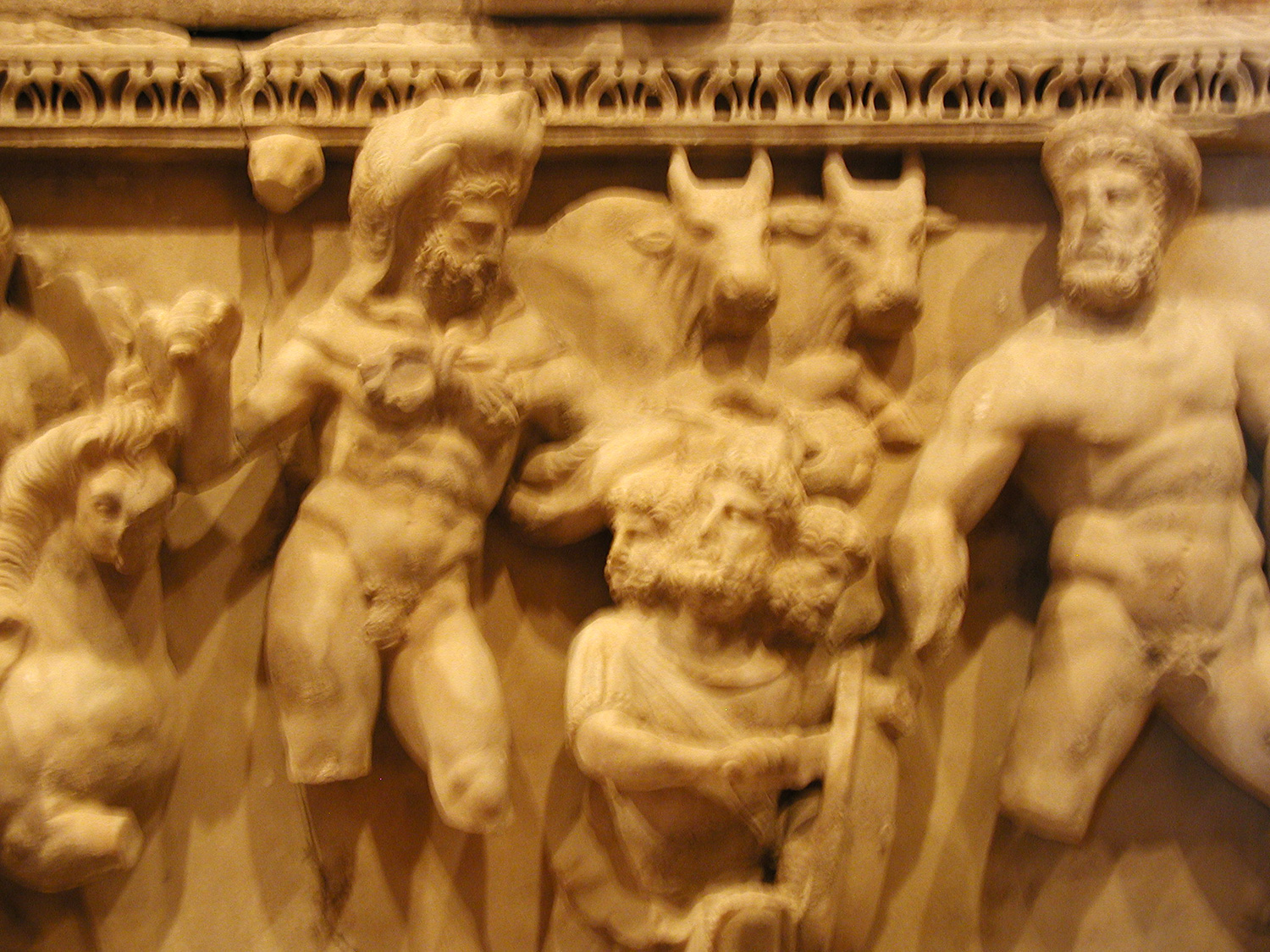March 2004
unfinished
1 March 2004, around 16.32.

pseudaphoristica (8)
4 March 2004, around 15.05.
Lack of opportunity is no proof of virtue.1
Afterword: why does the sudden realisation that I shall never read Ruskin’s Stones of Venice in its entirety bring tears to my eyes? Is it an allergic reaction to a lack of mad art historians? Or is it something more?
Epilogue: they dove into the pavement and disappeared.
Postscript: a verse, averse, aversion.
Addendum: It is thought that some Roman playwright was not a native Latin speaker because he played too much with the sound of words. Terence, I think.
[↩]
the mind diseased
6 March 2004, around 13.14.
Modern Greece, in history and literature, has been viewed as a transitory moment squeezed between two larger and more important entities. Viewed chronologically, modern Greece rests between the glory of the classical Greek past and the hope of a resurrected Greek future, which in many Western minds ought to resemble the democracies of Western Europe and America, which were founded on classical Greek models.
Roessel’s book is much needed: the ideals of and ideas about modern Greece in English-language literature after Byron deserves much closer attention.1 I just wish he wouldn’t begin it by citing the silly fallacy that ‘the democracies of Western Europe and America […] were founded on classical Greek models’. Last I checked, representative democracy (aka ‘Republicanism’)—such as is found in, e.g., America—was a Roman idea. The details of all the constitutions of ‘Western Europe’ is beyond my ken, but again I would imagine that there’s more of Rome than Athens in them—romantic fictions notwithstanding.
Come to think of it, though, there were so many different forms of ‘classical’ Greek government, it’s ridiculous to talk as if Athens was the model for them all.2 Admittedly, it would not be at all amiss to talk as though people think that’s the case. However: if I keep on at this rate, I’ll start telling you why I think the Elgin marbles should be sent to China; and I don’t think either of us would be amused at the end of that tirade…
- Not least because of the political slantings of such literature (and indeed, of Byron). For further details on why Roessel’s book is such a wonderful idea, see Robin Waterfield’s comments in the BMCR. (Cf. a review of Stephen Minta’s On a Voiceless Shore: Byron in Greece from the Journal of Modern Greek Studies [JHU Project Muse]). [↩]
- Cf. Thuc. 2.37 & 2.65.4–9 [↩]
Citation (18)
8 March 2004, around 8.12.
The student may read Homer or Æschylus in the Greek without danger of dissipation or luxuriousness, for it implies that he in some measure emulate their heroes, and consecrate morning hours to their pages. The heroic books, even if printed in the character of our mother tongue, will always be in a language dead to degenerate times; and we must laboriously seek the meaning of each word and line, conjecturing a larger sense than common use permits out of what wisdom and valor and generosity we have. The modern cheap and fertile press, with all its translations, has done little to bring us nearer to the heroic writers of antiquity. They seem as solitary, and the letter in which they are printed as rare and curious, as ever. It is worth the expense of youthful days and costly hours, if you learn only some words of an ancient language, which are raised out of the trivialness of the street, to be perpetual suggestions and provocations. It is not in vain that the farmer remembers and repeats the few Latin words which he has heard. Men sometimes speak as if the study of the classics would at length make way for more modern and practical studies; but the adventurous student will always study classics, in whatever language they may be written and however ancient they may be. For what are the classics but the noblest recorded thoughts of man? They are the only oracles which are not decayed, and there are such answers to the most modern inquiry in them as Delphi and Dodona never gave. We might as well omit to study Nature because she is old. To read well, that is, to read true books in a true spirit, is a noble exercise, and one that will task the reader more than any exercise which the customs of the day esteem. It requires a training such as the athletes underwent, the steady intention almost of the whole life to this object.
the trial
9 March 2004, around 16.44.




sortes
10 March 2004, around 8.07.
Among the Romanes a Poet was called Vates, which is as much as a diviner, foreseer, or Prophet, as by his conjoyned words Vaticinium, and Vaticinari, is manifest, so heavenly a title did that excellent people bestowe uppon this hart-ravishing knowledge, and so farre were they carried into the admiration thereof, that they thought in the chanceable hitting uppon any of such verses, great foretokens of their following fortunes, were placed. Whereupon grew the word of Sortes Vergilianae, when by suddaine opening Virgils Booke, they lighted uppon some verse of his, as it is reported by many, whereof the Histories of the Emperours lives are full.
Sometimes I like to start my mornings by playing sortes Vergilianae — which is not, in my arrogant opinion, very different from reading one’s horoscope or doing the crossword. My question is usually something along the lines of ‘what should I do today’. I play this little game not, incidentally, because I like Vergil. I loathe Vergil. But I like my allusive actions to be apt in their aping of the antique.
This morning’s result was the following:
At Venus aetherios inter dea candida nimbos
And meanwhile Venus, goddess radiant amid the aery clouds…
This could have several meanings, I think:
- My mother’s going to come visit, bringing gifts intended for my protection;
- My mother wit, shining bright amidst turbulent troubles, will bear the gift that will protect me;
- I’m going to receive a shiny new toy;
- Egged on by desire and familial pressure, I shall pursue my (new-found) destiny, slogging through turmoil and several thousand lines of Latin hexameter, ultimately revealing my brutality in my desire for revenge;
- On some cloudy day, Venus like a bolt of lightning is going to strike me.
I don’t like any of these options; so here’s a bibliography of Vergilian influences — may it protect you therefrom.
obscure
11 March 2004, around 14.18.

Citation (19)
12 March 2004, around 10.58.
…eorum virorum cogitata non solum ad mores corrigendos, sed etiam ad omnium utilitatem perpetuo sunt praeparata, athletarum autem nobilitates brevi spatio cum suis corporibus senescunt; itaque neque cum maxime sunt florentes neque posteritati hi, quemadmodum sapientium cogitata hominum vitae, prodesse possunt.
The researches of these men are an everlasting possession, not only for the improvement of character but also for general utility. Indeed, the fame of athletes soon wanes with their bodily powers; and neither when they are most vigorous, nor afterwards for posterity, can they do for human life what is done by the researches of the learned.
red
13 March 2004, around 17.15.

Crambe repetita (6)
16 March 2004, around 8.08.
A mild, a compliant, an unutterably tranquil and harmless old lady, who never by any chance suggested the idea that she had been actually alive since the hour of her birth. Nature has so much to do in this world, and is engaged in generating such a vast variety of co-existent productions, that she must surely be now and then too flurried and confused to distinguish between the different processes that she is carrying on at the same time. Starting from this point of view, it will always remain my private persuasion that Nature was absorbed in making cabbages when Mrs. Vesey was born, and that the good lady suffered the consequences of a vegetable preoccupation in the mind of the Mother of us all.
reference
19 March 2004, around 16.08.
Idem classi praefectus circumvehens Peloponnesum, Laconicen populatus, classem eorum fugavit, Corcyram sub imperium Atheniensum redegit sociosque idem adiunxit Epirotas, Athamanas, Chaonas omnesque eas gentes, quae mare illud adiacent. quo facto Lacedaemonii de diutina contentione destiterunt et sua sponte Atheniensibus imperii maritimi principatum concesserunt, pacemque iis legibus constituerunt, ut Athenienses mari duces essent. quae victoria tantae fuit Atticis laetitiae, ut tum primum arae Paci publice sint factae eique deae pulvinar sit institutum.
entrance
22 March 2004, around 15.15.

de arte poetica liber
23 March 2004, around 12.18.
To my great embarrassment, I mistook this overview of William Blades’s Enemies of Books (via) for a poem1; e.g.:
Bagford the biblioclast.
Illustrations torn from MSS.
Title-pages torn from books.
Rubens, his engraved titles.
Colophons torn out of books.
Lincoln Cathedral
Dr. Dibdin’s Nosegay.
Theurdanck.
Fragments of MSS.
Some libraries almost useless.
[…]
The care that should be taken of books.
Enjoyment derived from them.
Incidentally, I am still amused by The Love Affairs of a Bibliomaniac, though its table of contents is nowhere near so … poetical:
My First Love
The Birth of a New Passion
The Luxury of Reading in Bed
The Mania of Collecting Seizes Me
Baldness and Intellectuality
[…]
The Pleasures of Extra-Illustration
The Odors which My Books Exhale.
- The realization (which occurred somewhere around the third line) that it was not, in fact, a ‘poem’ restored a bit of my faith in humanity. [↩]
A Sudden Liberating Thought
23 March 2004, around 19.09.
A collection of precisely observed short stories, wherein the mundane has meaning, and the unusual is commonplace; most of the men are disgusted at the thought of the moment of their conception, old men have weak hearts, and chess is invariably suggested as means for estranged relatives to pass the time. Women are usually more sensible, but equally ineffable. No one – especially if young – knows why they they act as they do and ‘the world isn’t what it used to be’ (187). The world-weariness and emptiness (‘Godlessness’?) of every moment becomes a bit tiring. To be read slowly, in the evenings, avoiding excess. It is a shame that the story ‘Thomas F’s Last Notes for the General Public’ is placed near the end of the collection, as it is wonderfully representative of all that is good in these stories, from the clear and unreliable characters, to the resigned humor in the face of change:
It’s been a long time since I stopped discussing finances with people who say they are losing money on something they could get rid of, it must be thirty years now, so I said nothing. But he didn’t require a rejoinder in order to go on. He held forth about all the other buildings of his which also showed a deficit, it was pitiful to listen to – he must’ve been a very poor capitalist. But I didn’t say a word, and eventually his lamentations came to an end – it was high time. Instead he asked for no apparent reason whether I believed in God. I was on the verge of asking which god he was referring to but contented myself with shaking my head (198).
By the time one reaches it, though, one already knows Askildsen’s tricks. Which is not, I suppose, necessarily a bad thing. ‘Carl Lange’ the story of a translator not quite accused of statutory rape, and the title story are also superb.
punt
24 March 2004, around 8.28.

Couplets for two ‘sonnets’ I will never complete:
Leave me my quiet corner and my books –
Safe from the ways of men and their sour looks.
Do not lament I write but of my self:
It is my all – I have no other pelf.
Vittoria Corombona
24 March 2004, around 15.18.

Springtime along the river, March 2004
The Victim of Prejudice
24 March 2004, around 19.07.
Who knew that stealing grapes could have such terrible repercussions? The young Mary Raymond (beautiful according to the custom of such novels) misappropriates the fruit to gratify the hunger of her childhood companion (and later, of course, beloved) William; she is, however, caught by the owner of the grapes, Sir Peter Osborne, who takes a fancy to her (tho’ she was only twelve at the time…). One would need to be blind not to see where this story is going. So poor Mary (poor, put-upon, thieving Mary) is, at a later date, obligingly raped by the wicked Sir Peter, who had gone through much trouble and expense to get her guardians out of the country (her father having conveniently died without leaving her much money). Poor Mary (poor, sweet Mary) then makes mighty efforts (friendless in a wicked world) not to become a prostitute as all ravaged women invariably do. She, being virtuous and intelligent as well as beautiful (being beautiful is such a nuisance, isn’t it?), of course succeeds and lives in modest contentment after her guardians return from two years of ‘exile’, but:
The vigorous promise of my youth has failed. The victim of a barbarous prejudice, society has cast me out from its bosom. The sensibilities of my heart have been turned to bitterness, the powers of my mind wasted, my projects rendered abortive, my virtues and my sufferings alike unrewarded, I have lived in vain! unless the story of my sorrows should kindle in the heart of man, in behalf of my oppressed sex, the sacred claims of humanity and justice (174).
I shouldn’t be so flippant about such a serious topic, but poor Hays uses so many of the same phrases and quotations from her earlier book – The Memoirs of Emma Courtney, about a woman who becomes infatuated with a man who cannot reciprocate, not least because he is (secretly) married – that it seems as though she writes by recipe. Still, for those who enjoy eighteenth century women’s novels, there’s much scope for interpretation, criticism, and feminist delight in the book, replete as it is with a heartless male villain, an oppressive society, &c.
Citation (20)
25 March 2004, around 15.25.
Yet what, said she, is to be expected from our persuit of happiness, when we find the state of life to be such, that happiness itself is the cause of misery? Why should we endeavour to attain that, of which the possession cannot be secured? I shall henceforward fear to yield my heart to excellence, however bright, or to fondness, however tender, lest I should lose again what I have lost…
epistulæ immaniores
26 March 2004, around 9.18.
I was quite pleased with myself: I managed to trim a ten-paragraph letter down to nine words, excluding salutation. Sadly, neither the grammar nor spelling were all that they should be, and I am pleased no more.
Rasselas
26 March 2004, around 19.06.
There are some who object to the use of novels for the proliferation of philosophical principles, but I cannot say that I am usually one of them. Reading this unhappy cross between Vathek and Candide almost alters my opinion, though. Inasmuch as Vathek is more entertaining, and Candide is more vicious (or vice versa), I cannot recommend Rasselas as anything other than a benignant uncle of a novellas, mumbling truisms such as:
If the eye of hostility could learn reverence or pity, excellence like yours had been exempt from injury. But the angels of affliction spread their toils alike for the virtuous and the wicked, for the mighty and the mean. Do not be disconsolate… (ch. 38)
Most readers, though, are likely to concur with the opinion of one literary heroine:
…a brief examination convinced me that the contents were less taking than the title: ‘Rasselas’ looked dull to my trifling taste; I saw nothing about fairies, nothing about genii; no bright variety seemed spread over the closely-printed pages. I returned it to her; she received it quietly…
– Jane Eyre, Ch. 5.
pseudaphoristica (9)
27 March 2004, around 17.39.
If you have found a silk purse, it would be absurd to keep the sow’s ear ‘just in case’.
The Green Dwarf
27 March 2004, around 19.05.
Because everyone needs to read more Duke of Wellington fan-fiction.
to the dogs
29 March 2004, around 19.26.

An Artemis in Anatolia
Street Sleeper
31 March 2004, around 19.02.
Then they heard the sound of a two-tone horn. Whether it was police, fire or ambulance they didn’t know, but it was time to be going. Fat Les took the remaining bottles out of the car, dropped them in the middle of the road to form a zebra crossing of petrol and broken glass. He threw a piece of burning rag at the petrol. A sheet of flame danced satisfyingly from the tarmac. They returned to the Beetle, drove round the wreck of the Range Rover and set off again into some unimaginable future of love, revenge, class warfare and oral sex (108).
Geoff Nicholson’s short novel Street Sleeper is about the Volkswagen Beetle, and historical anecdotes about its design and marketing form a significant part of the narrative. Street Sleeper‘s also about former librarian Barry Osgathorpe, who buys an ugly VW Bug he calls Enlightenment, changes his name to Ishmael (as in,’Call me…‘) and sets out in search of spirituality and the perfect blow-job. Along the way, he picks up a disciple, Davey, and a girl, Marilyn. They get tangled up with Fat Les, champion of the underdog and refurbisher of Beetles, as well as a conservative MP and his shotgun-toting cronies the ‘Crockenfield Blazers’. To describe any more of the plot would lessen one’s enjoyment of this agreeable fluff (from which one could doubtless draw important observations about breakdowns in English society in the 1980s). My favorite bit, though, is a description of the ad-man Bill Bernbach:
An English graduate from New York University, he is at heart a copywriter, but a copywriter with an unfailing instinct for integrating words and pictures.
He gets to work at nine, goes home at five. He is a brilliant maverick who loves his family.
He carries with him a card that he looks at from time to time, especially when facing some client with whom he particularly disagrees.
The card reads, ‘Maybe he’s right.’ (110f.)
